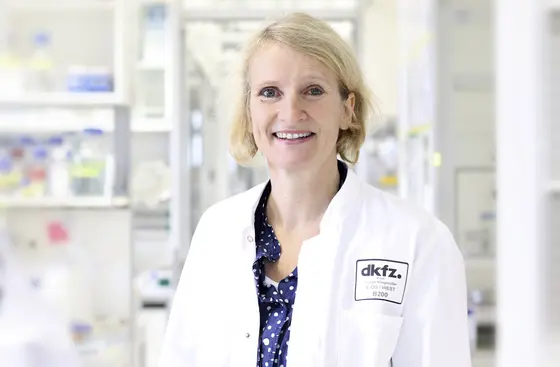Membership of EMBO is regarded as a recognition of scientific excellence throughout the world. Every year, the organization adds new researchers to its network after they have been nominated and selected by existing members for their outstanding research in the field of life sciences. Members can play an active role in shaping the organization's work as a member of the Council, by evaluating funding applications, or as a mentor to junior scientists. In this year's selection process, EMBO announced three researchers from the German Cancer Research Center (DKFZ) as new members.
Systems biologist Ursula Klingmüller has been conducting research at the DKFZ since 2003. She uses mathematical models and time-resolved data to examine cellular networks that determine the fate of a cell – survival, division, differentiation, or death. Klingmüller studied biology at the universities of Bayreuth and Heidelberg and earned her doctorate at the Center for Molecular Biology in Heidelberg (ZMBH). She has been a member of the German Ethics Council since 2016.
Ana Martin-Villalba studies the degenerative processes in the central nervous system in old age and in diseases, comparing them with regeneration after damage to the pancreatic gland, among other things. She focuses on the regeneration potential of stem cells and their role in carcinogenesis. Ana Martin-Villalba studied medicine at the University of Murcia in Spain and in Leeds, UK before obtaining a doctorate from the University of Heidelberg. She has already received the Paul Ehrlich and Ludwig Darmstaedter Award and the Heinz Maier-Leibnitz Prize.
Aurelio Teleman studied biochemistry at Harvard University before completing a doctorate at Imperial College London and at the European Molecular Biology Laboratory (EMBL) in Heidelberg. He has been investigating the regulation of cell growth at the DKFZ since 2007. His achievements include the discovery of a new and surprising signaling pathway: He established that stearic acid, a fatty acid, is not only a metabolic product, but also steers important biochemical processes in the cell. In addition to other honors and awards, Teleman was awarded the EMBO Young Investigator Award back in 2010.



